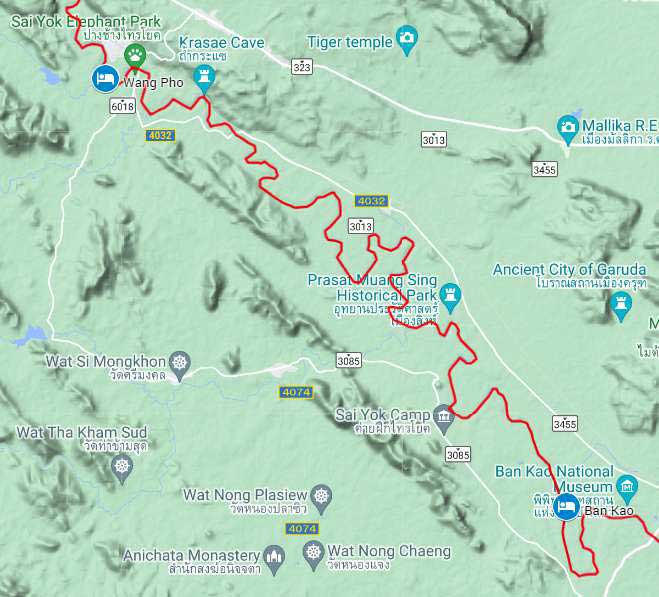

13 November Banana Resort and Spa (Ban Kao)
40.5 kilometers
The usual
morning clouds hung around the mountains, then we had lots of sunshine from
partly cloudy skies. Breezes—typically headwinds—sprang up now and then. Dark
clouds moved in during late afternoon, then bits of rain fell after our arrival.
Our resort provided a basic buffet breakfast with fried eggs and toast, but I
didn’t care for the oniony fried rice.
The wider and deeper river meant
less current, so this felt like a long day. We paddled the short distance to the
spectacular cliff at Krasae Cave, then climbed concrete steps from the river to
the railroad tracks and the cave. Buddha images reside in the large first
chamber of the cave, and a path leads into a narrow passage farther back. After
admiring the cave and river views, we returned to the kayaks. However Areeya
stayed on the tracks to take aerial photos of us on the water. She then walked
along the tracks on high trestle known as “Dangerous Curve” to where she could
walk back to the river and be picked up. Beyond the Krasae Cave area we had
little in the way of mountain views or riverside cliffs, but Mathilde and I did
poke into a little cave-like overhang.
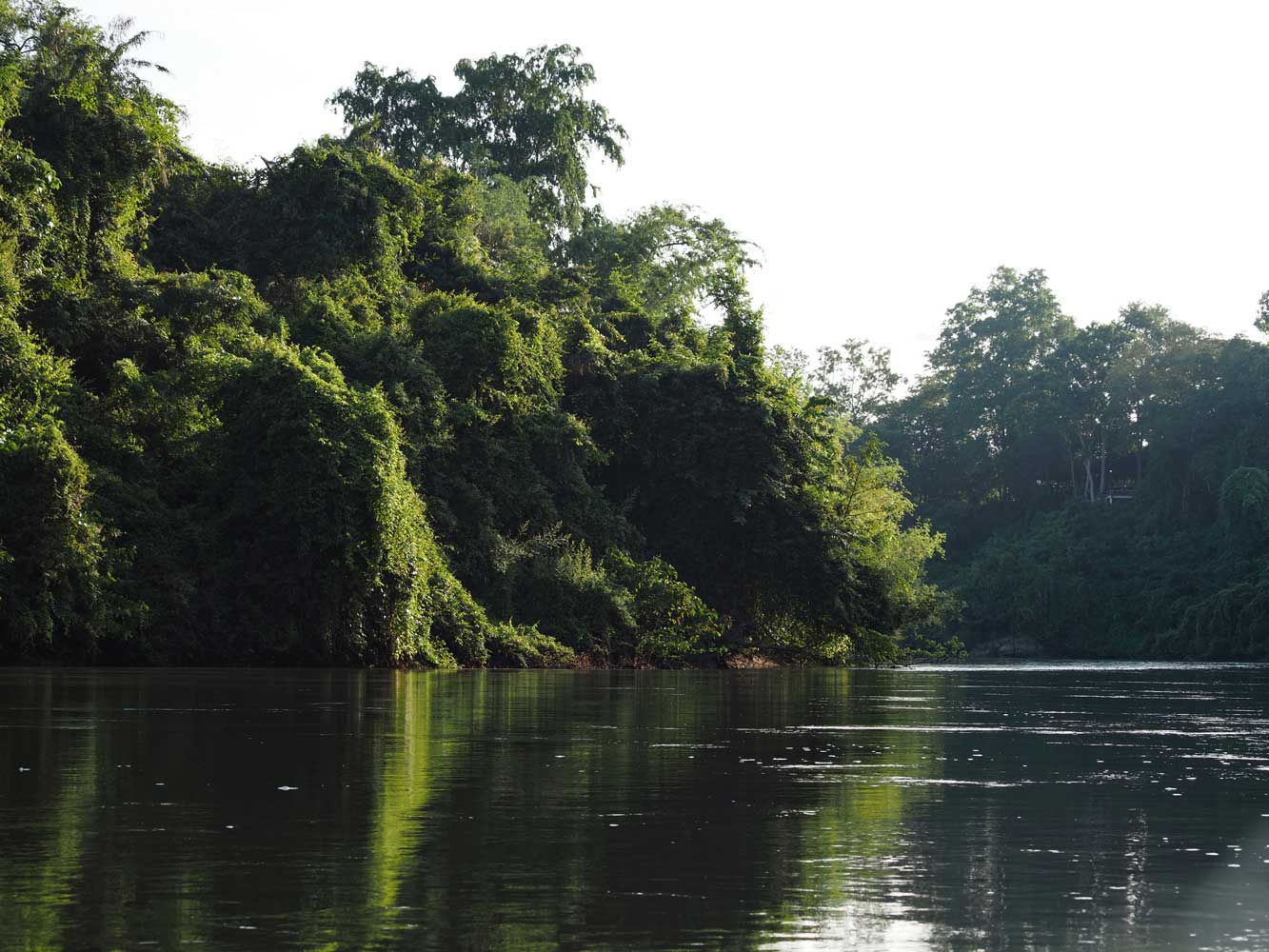
Morning tranquility
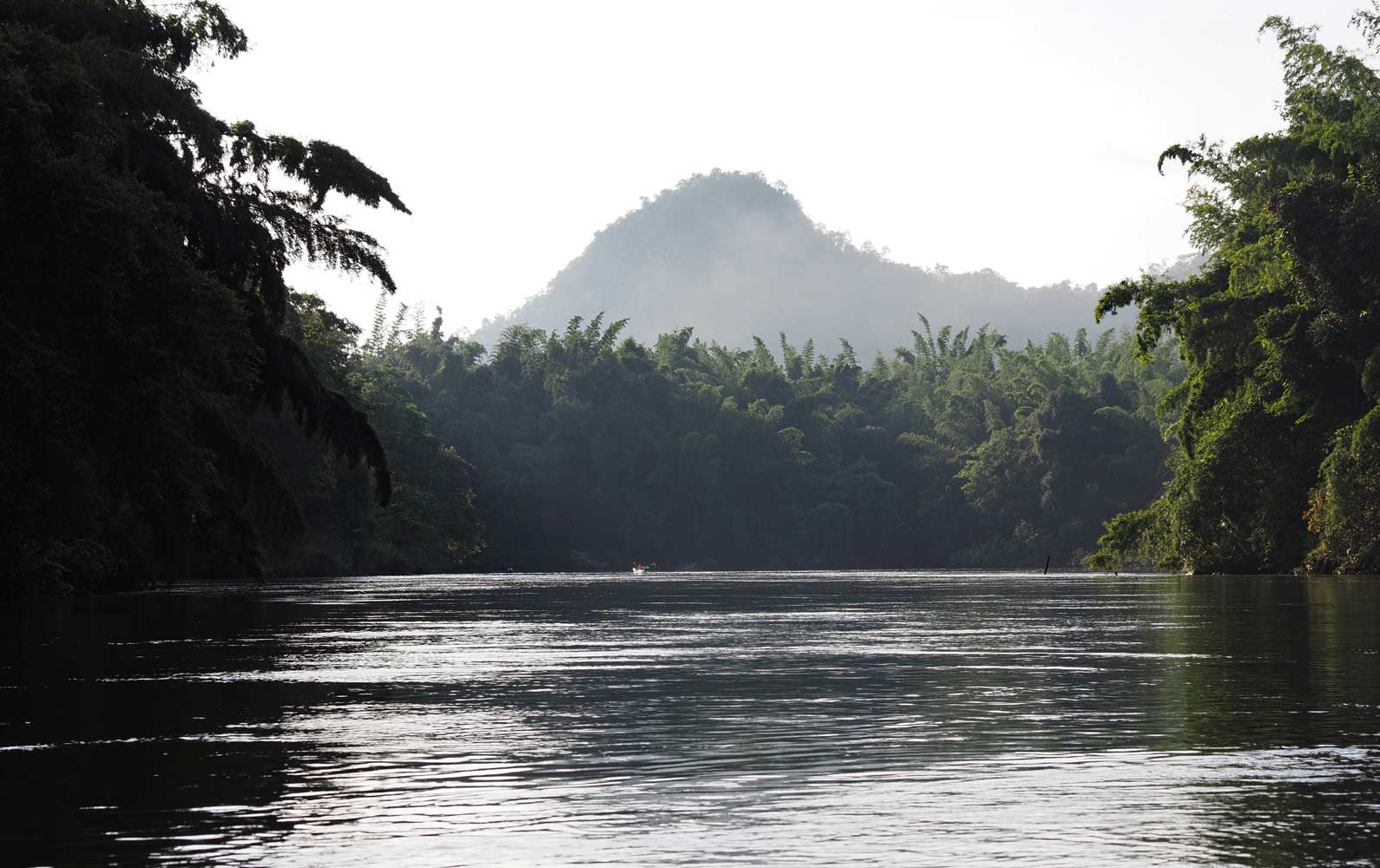
We seem lost in
the vastness of the river and jungle.
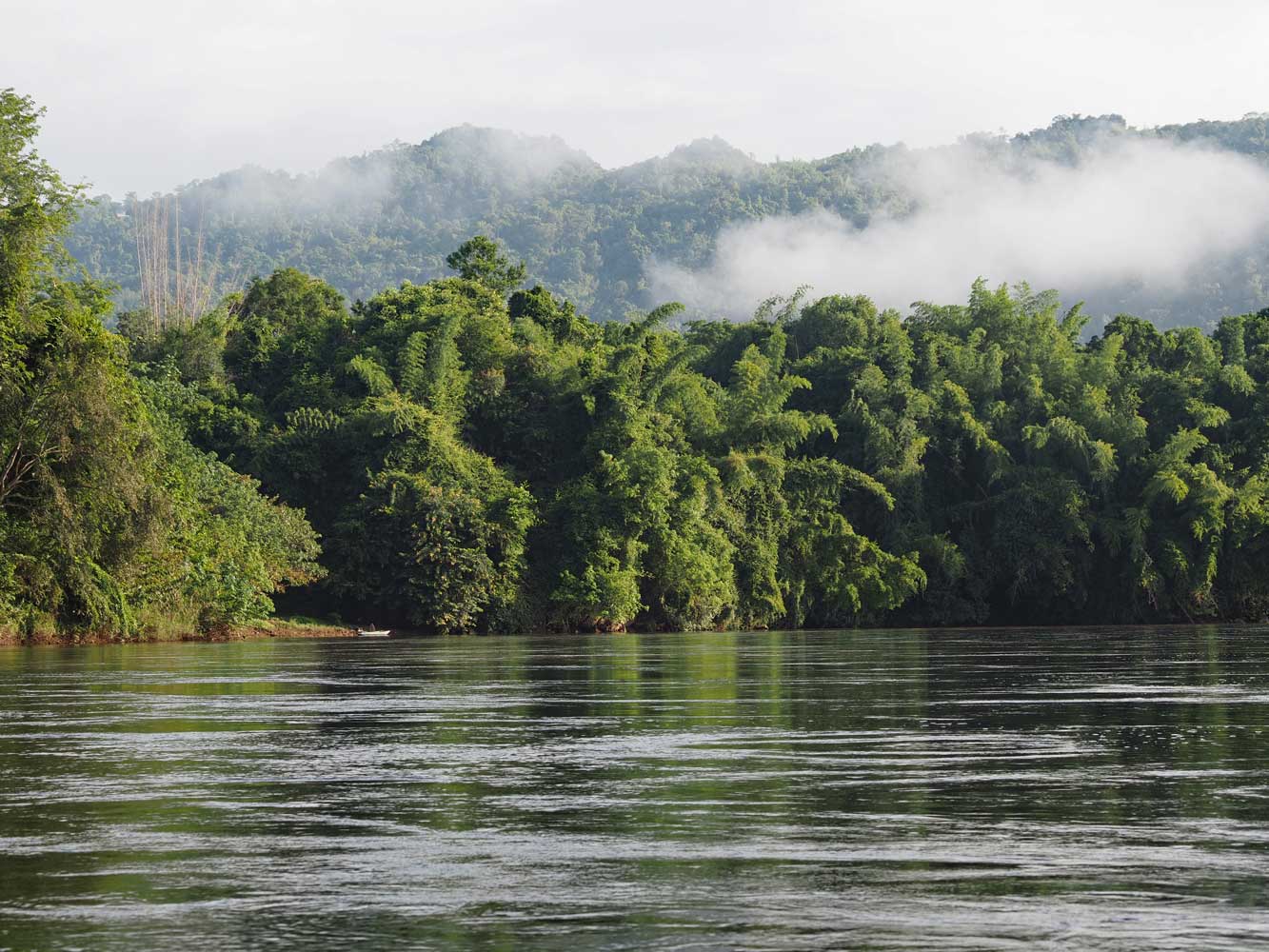
The sun breaks
through around 8 a.m.
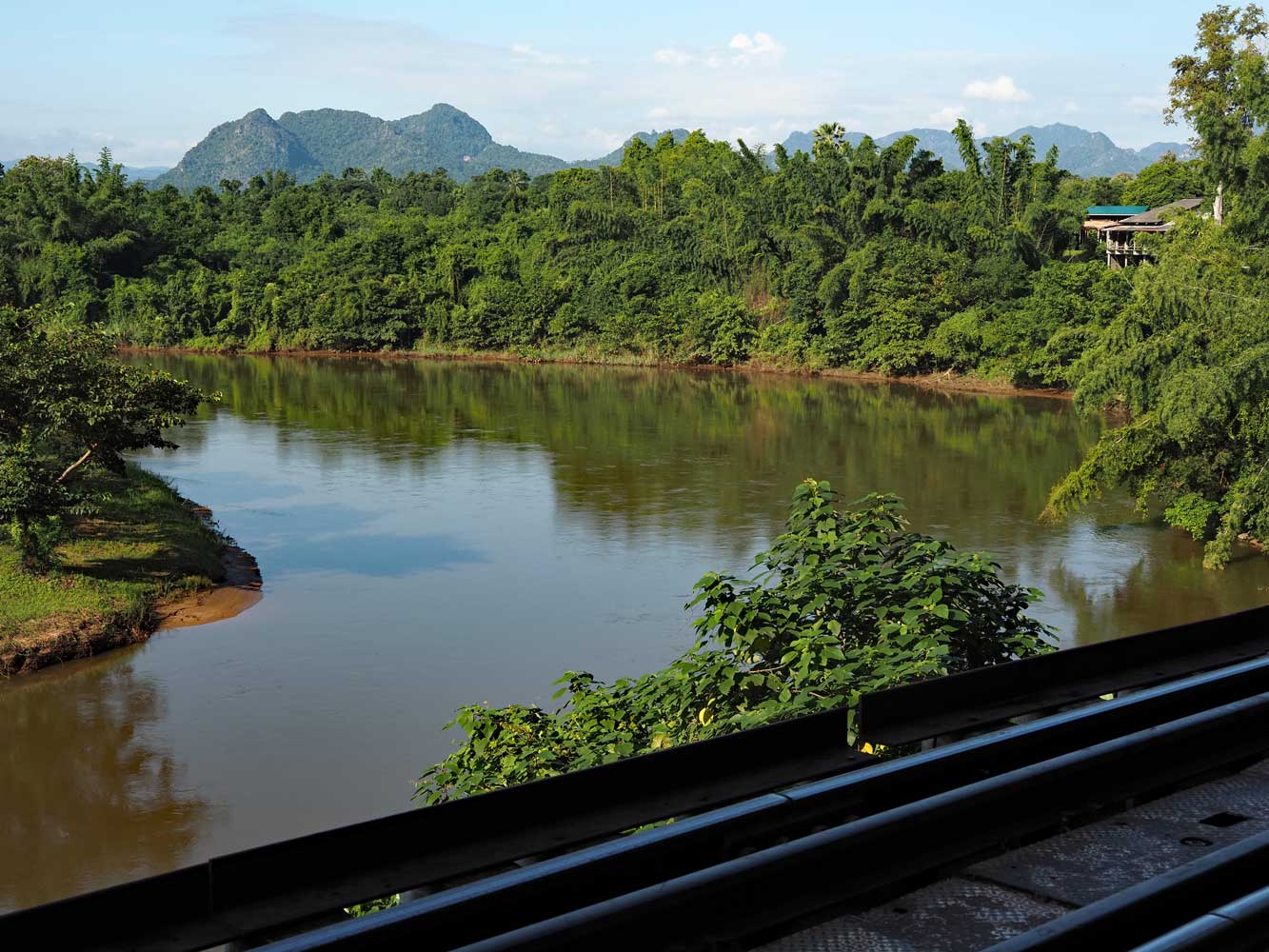
View upriver from
the tracks in front of Krasae Cave
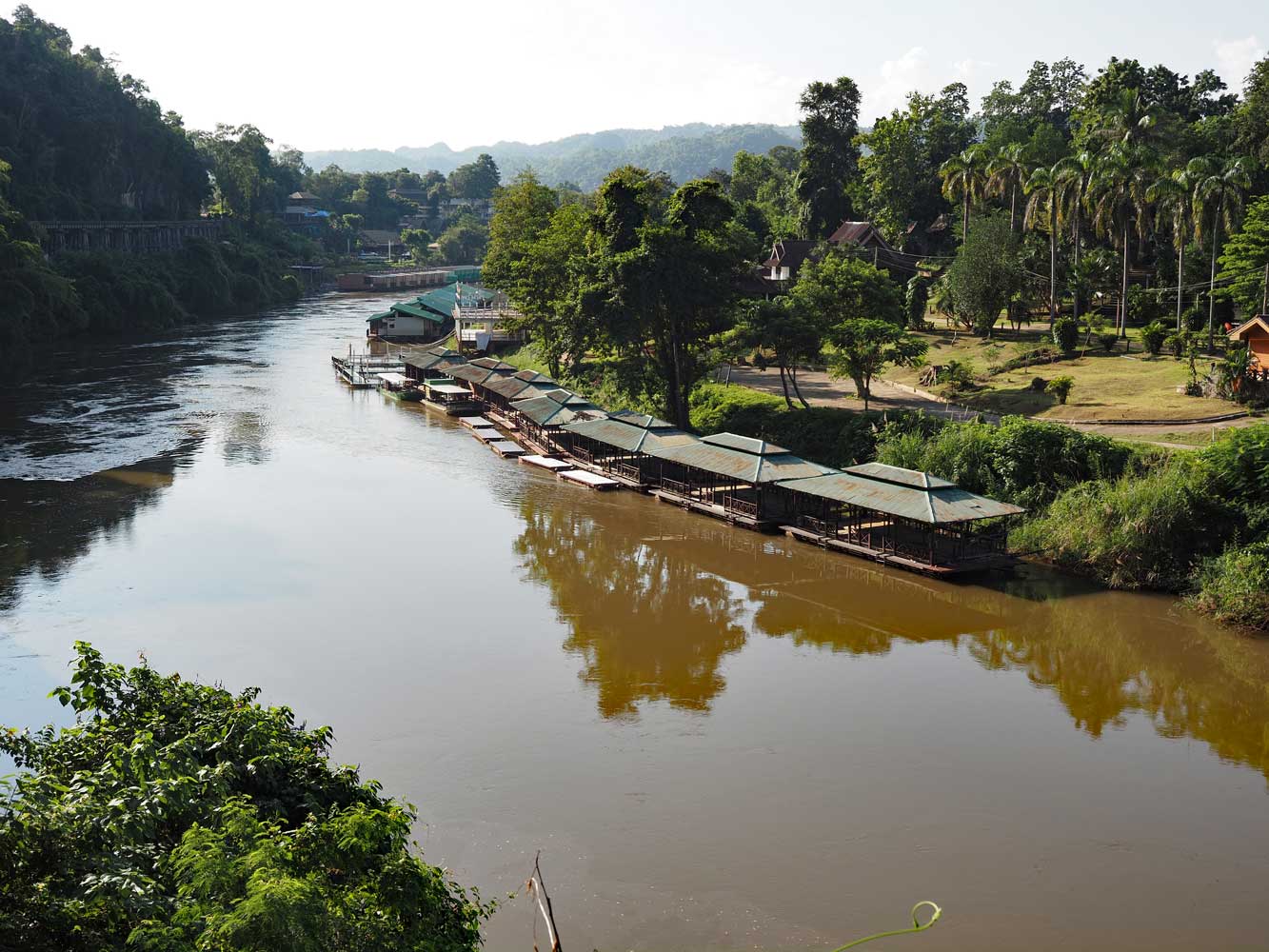
Downriver, tracks
of “Dangerous Curve” run along cliffs on the left with raft restaurants and
resorts across on the right.
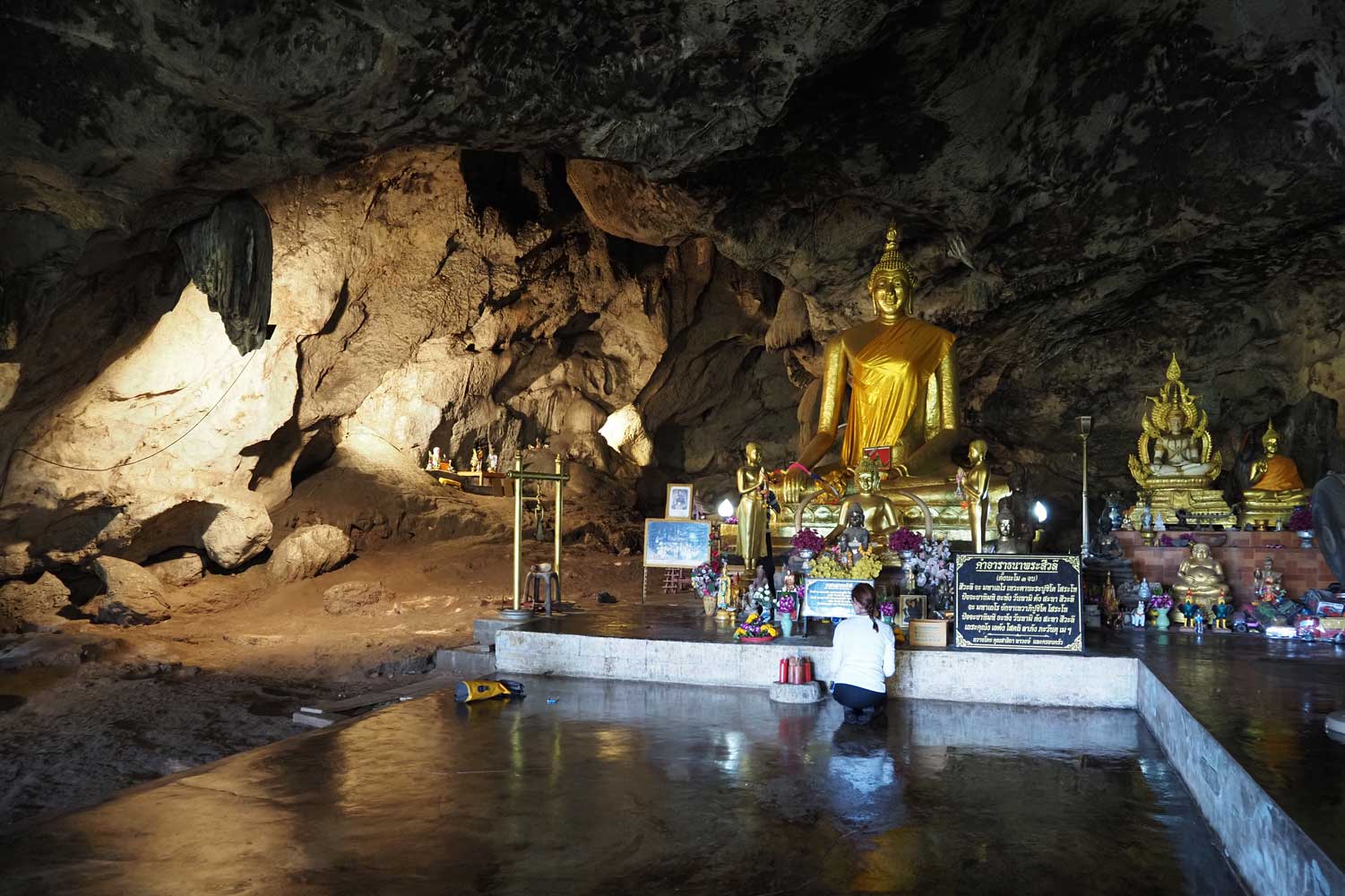
The main chamber of
Krasae Cave
Later in the morning we stopped
at Elephants’ Home and Nature, one of several tourist elephant camps along the
river. Chris had phoned the owner, who arranged four elephants and their mahouts
to meet us at the shore. The elephants may have been unsure about our unfamiliar
kayaks, but eagerly accepted the baskets of watermelon we had purchased. A
couple elephants went for a swim, completely submerging themselves while the
mahouts seemed to be walking on water. One of the elephants spouted water from
its trunk, giving Mathilde an unexpected shower.
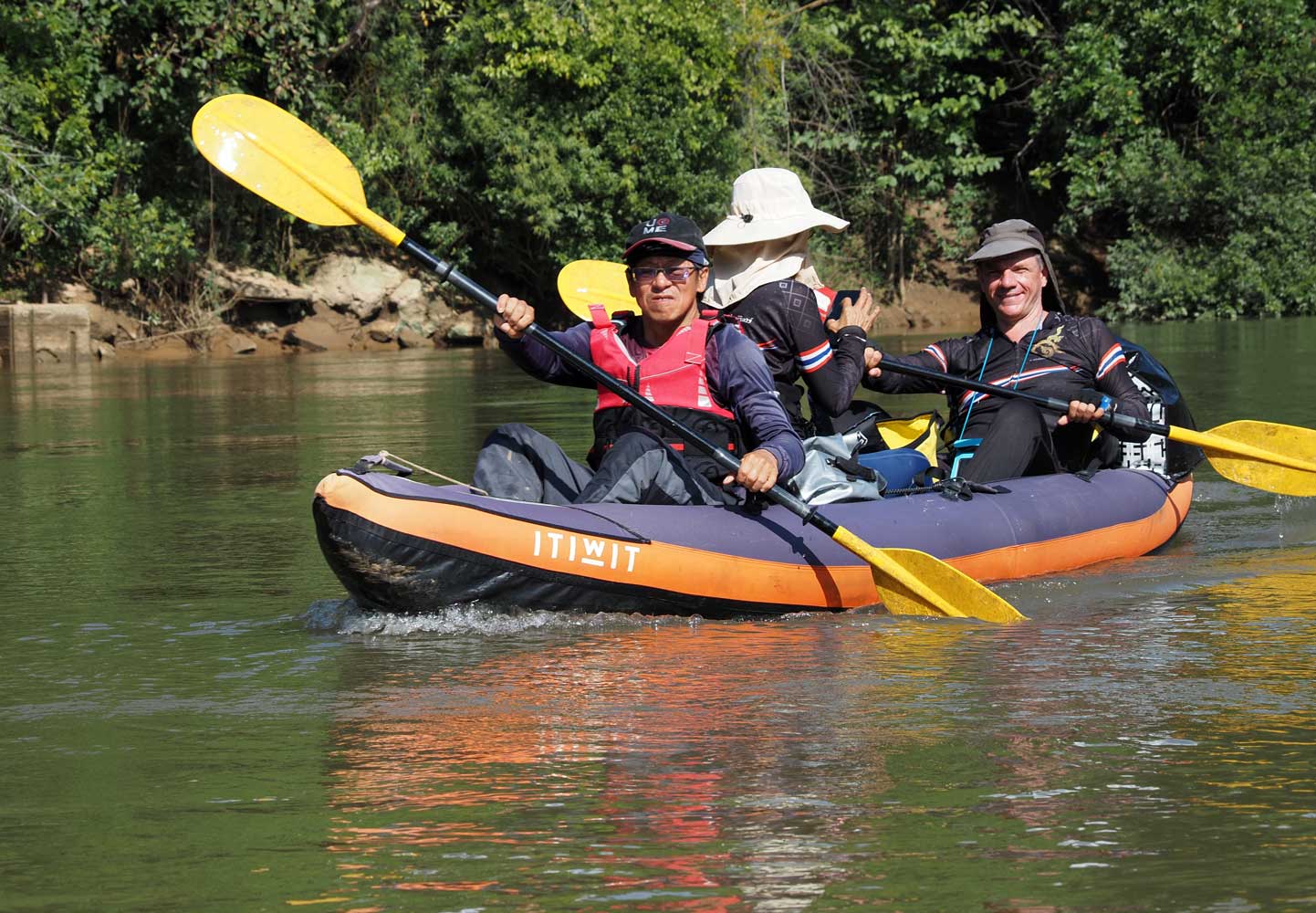
Chow, Areeya, and
Chris soon catch up to Mathilde and me.
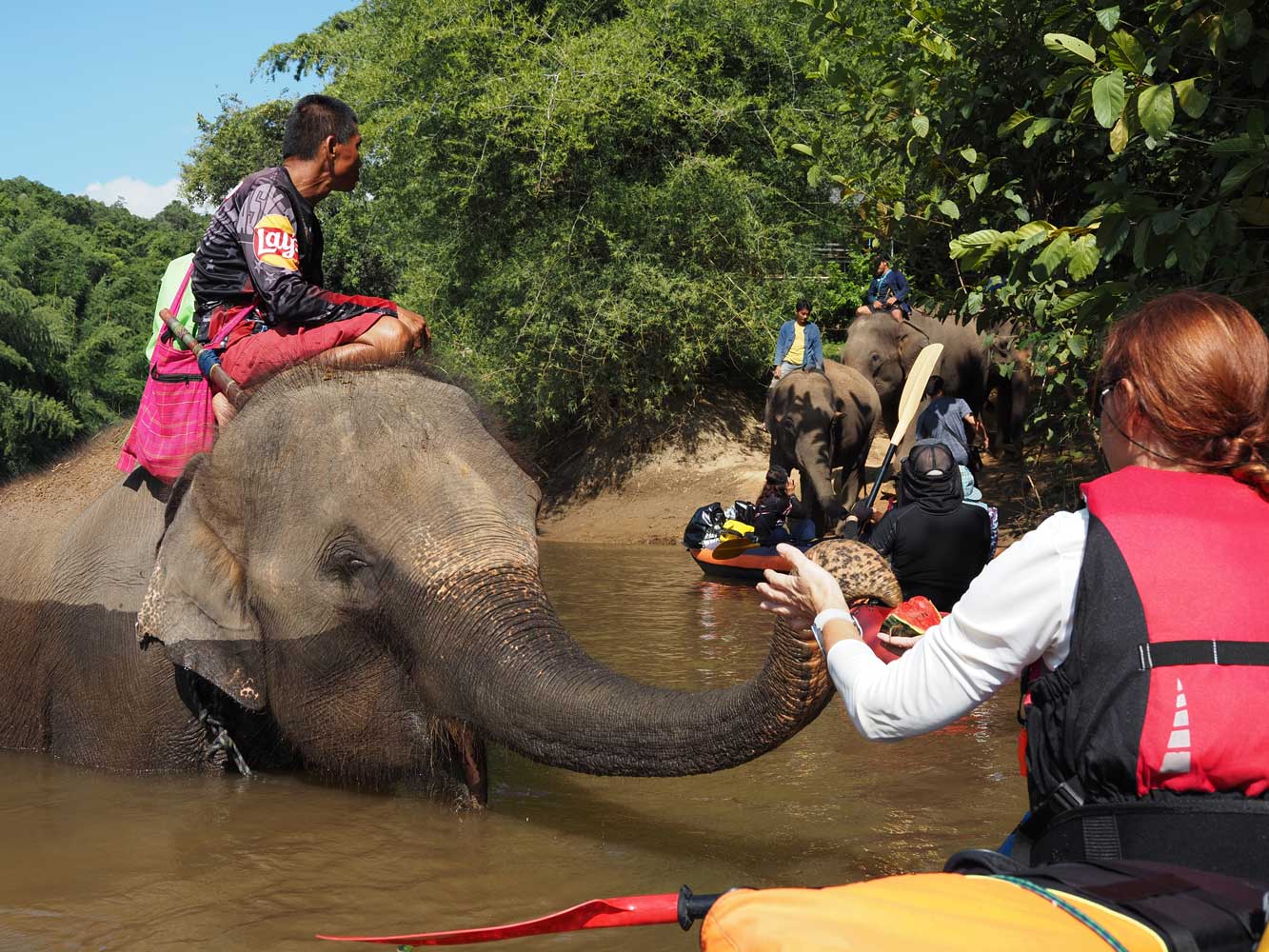
Mathilde hands
watermelon slices to an appreciative elephant.
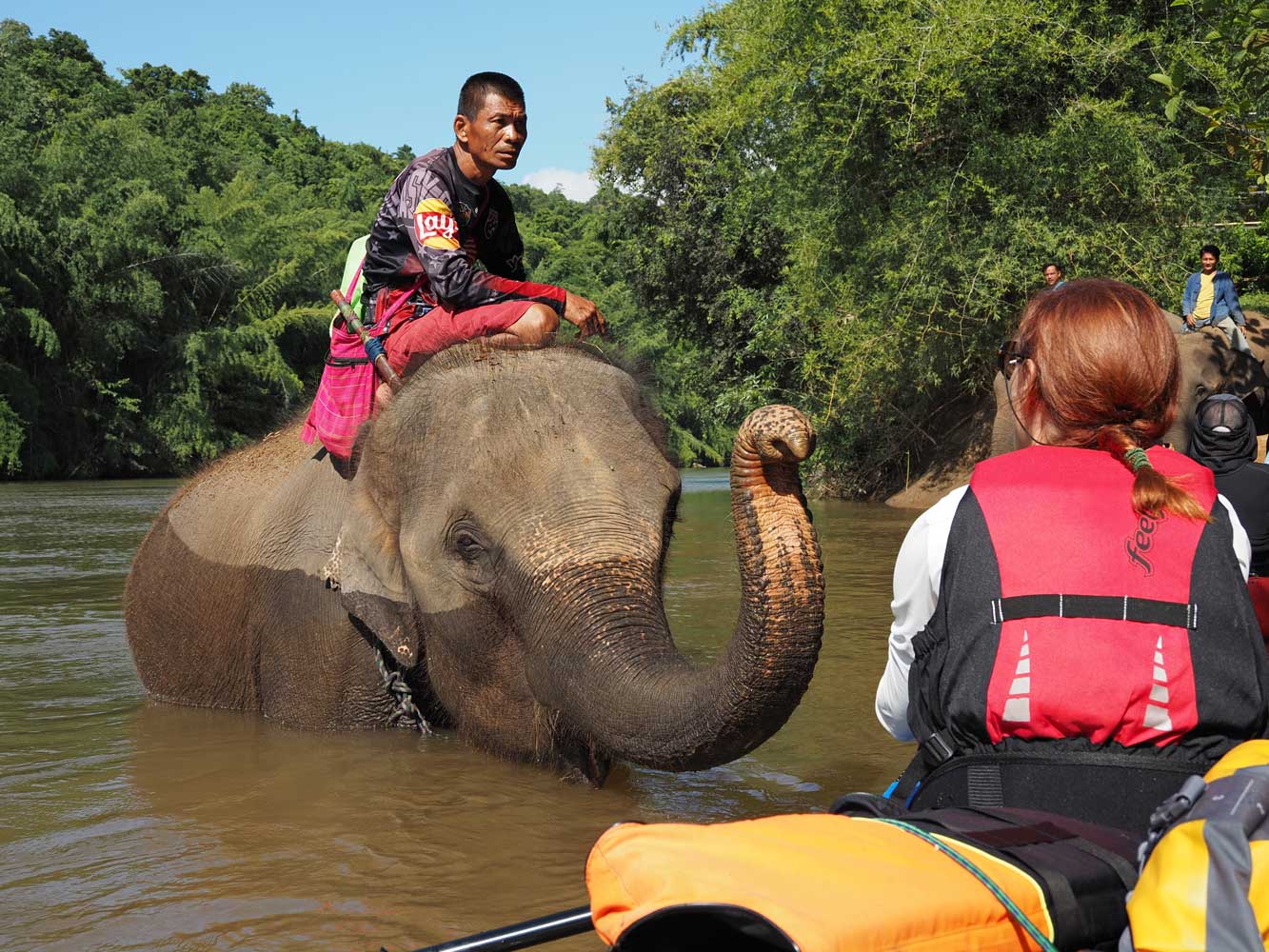
The elephant seems to be saying ‘thanks.’
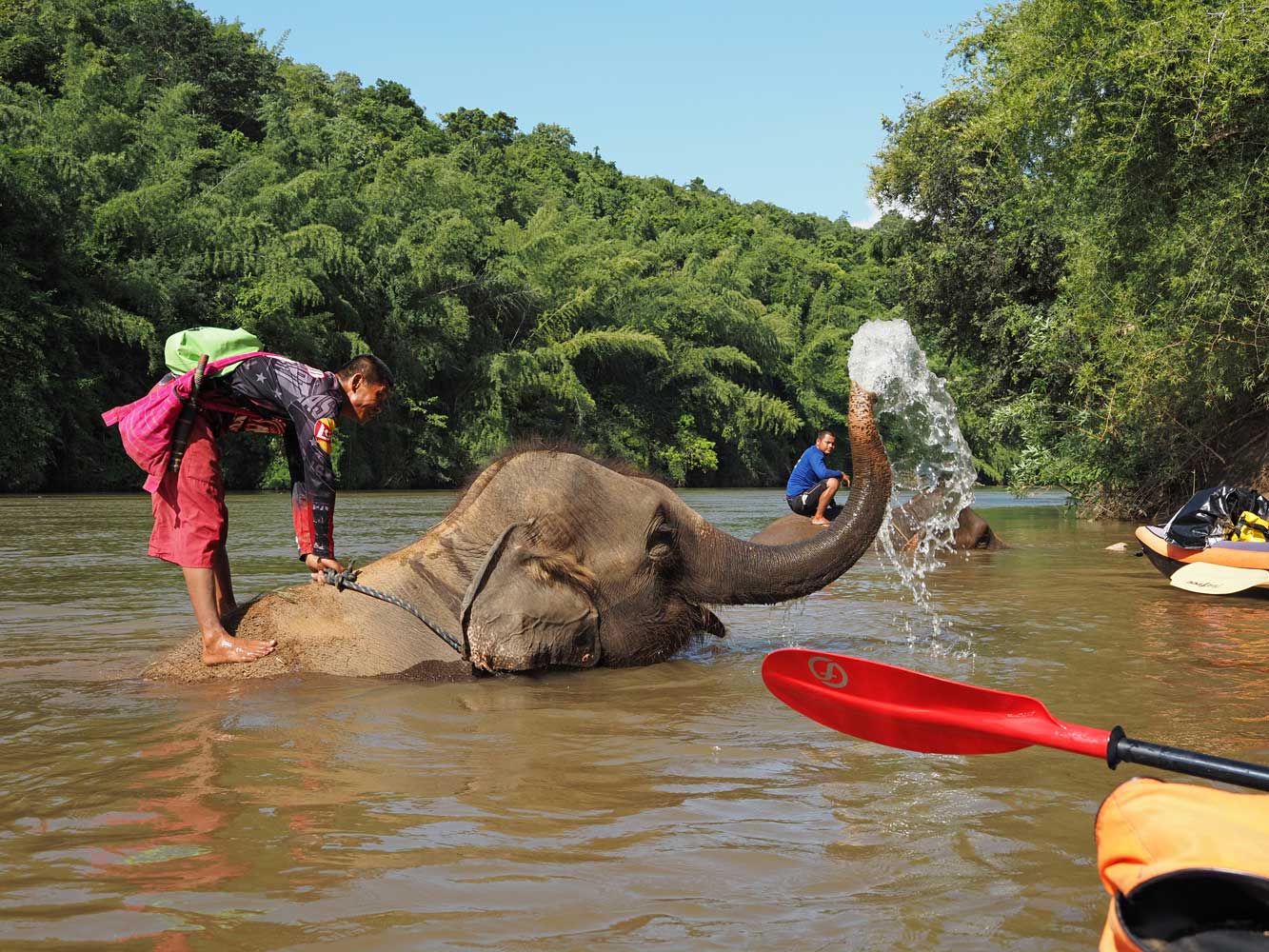
The elephant sinks
lower and lower until it disappears.
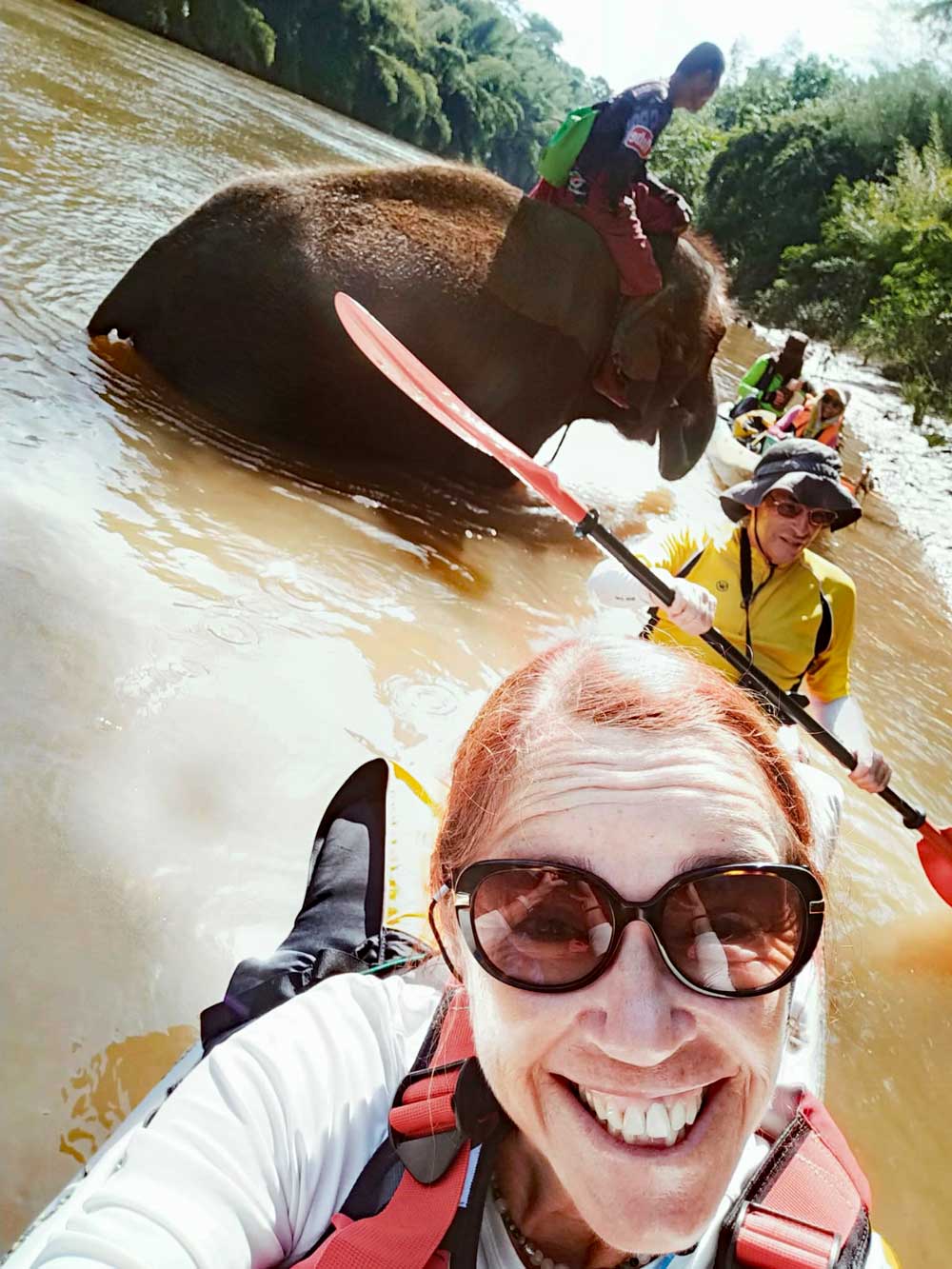
Mathilde
takes a great selfie!
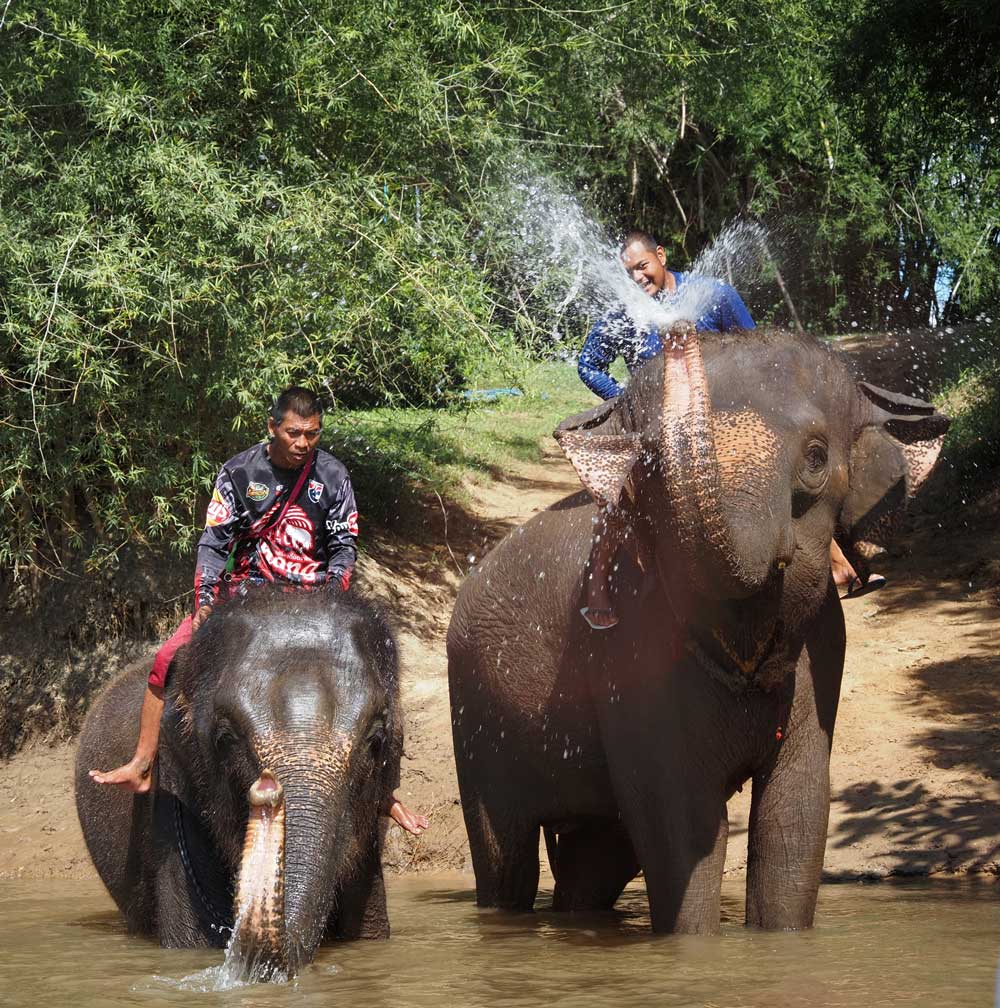
Lastly, the
elephants give us a shower.
In the early afternoon
we stopped at Prasat Muang Sing Historical Park, a picturesque pair of
Bayon-style temples which date to the Khmer kingdom in the reign of King
Jayavarman VII (1180-1219). The best preserved of the temples, all constructed
of laterite stone, has a central and two gateway towers, an encircling corridor,
and a library. The other temple has a high foundation with a maze of low walls
which enclose stone bases that once supported statues. The group headed to a
nearby noodle shop, but I was content with a chocolate ice cream bar and lemon
tea, giving me more time to explore the site. A small exhibit hall displays
statue replicas, stone and metal tools, and stucco decorations. Stucco probably
once covered the temple exteriors, which would have given a very different
appearance from today’s bare laterite. Two tiny stone ruins may have been
temples from earlier times. A burial site replica near where we tied up the
kayaks shows prehistoric skeletons with their bronze and shell bangles, stone
and glass beads, pottery, and other funerary objects.
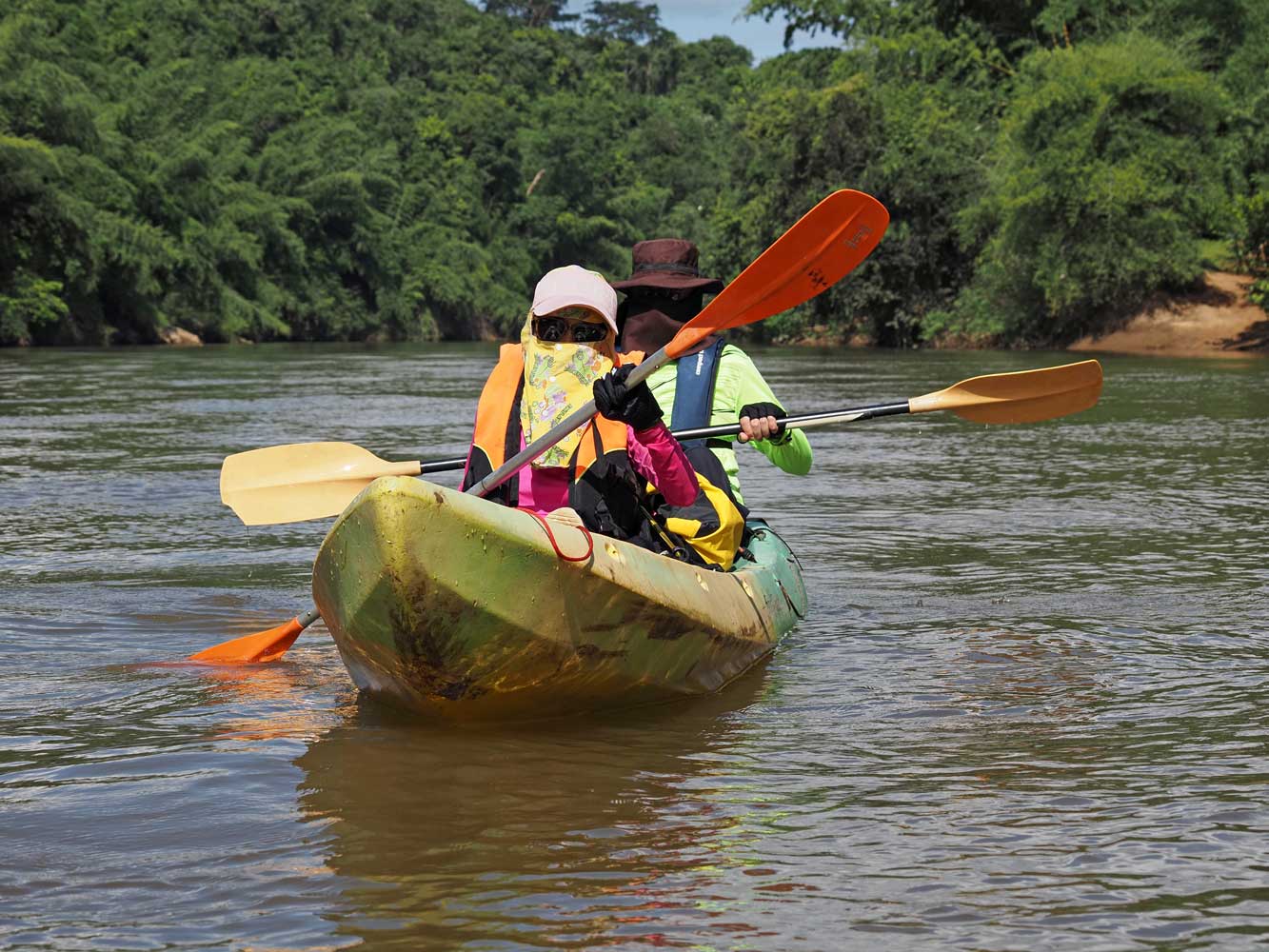
Masked bandits? No,
just Iew and David with their sun-protection gear.
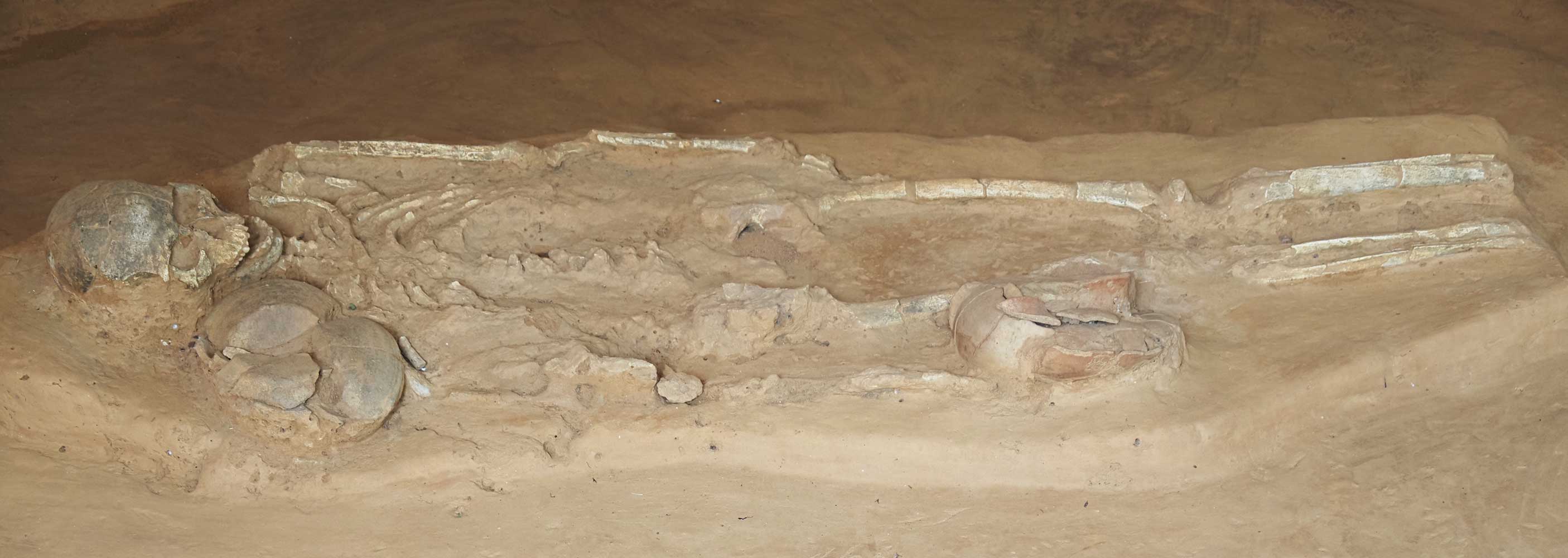
Skeleton No. 4 was a female who died at age 20-30 years. The head was turned to the southeast. Bronze vessels were placed at the head and knees, and three pottery vessels (not shown here) at the feet. Other artifacts found in the burial include metal tools, clay spindle whorls, bronze bangles, shell bangles, agate beads, glass beads, and carnelian beads.
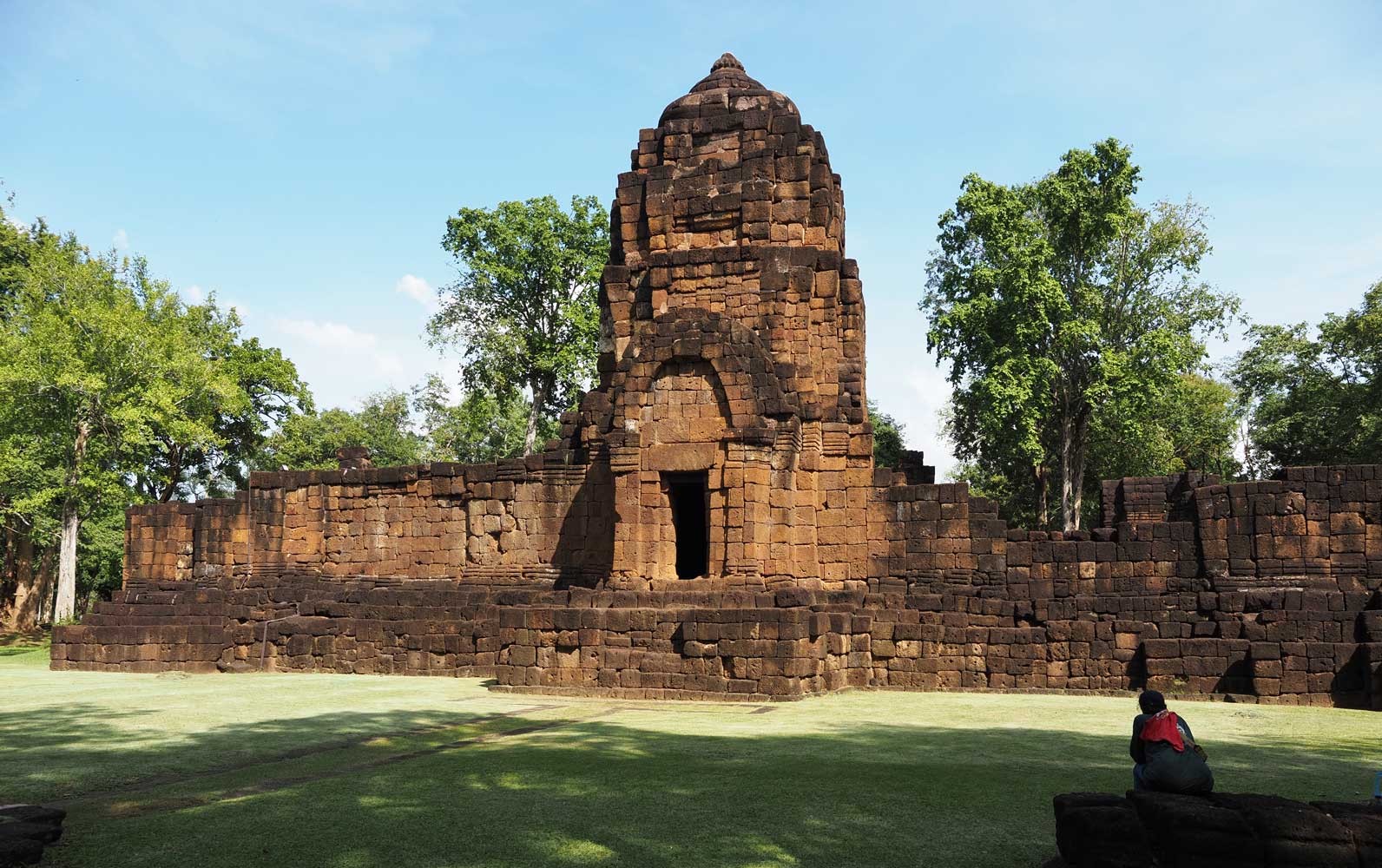
The west side of
the main temple has the highest tower.
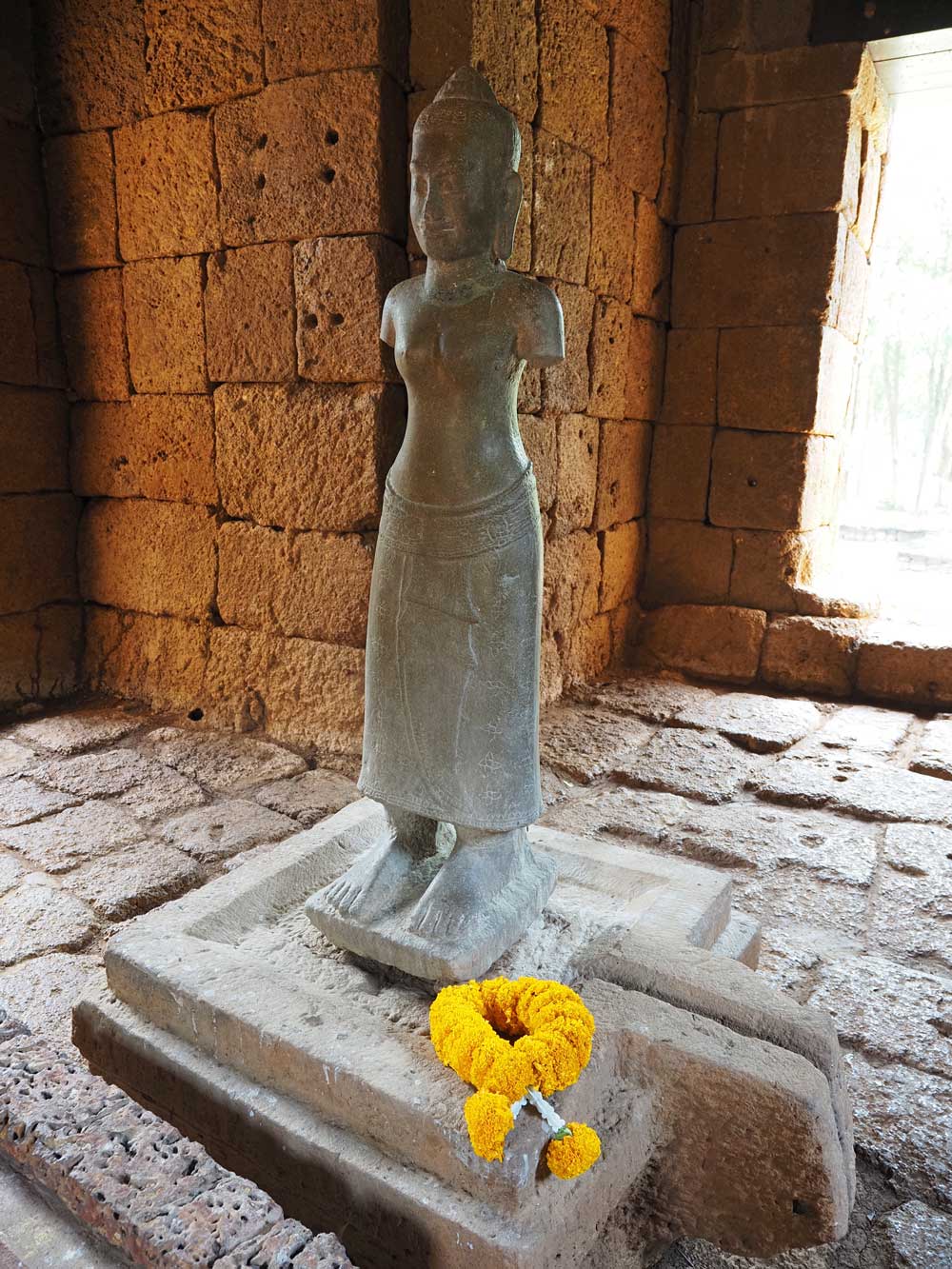
In the west tower,
Prajnaparamita Devi is a personification of the perfection wisdom,
also
known as the “Great Mother” who was widely depicted in South Asian Buddhist art.
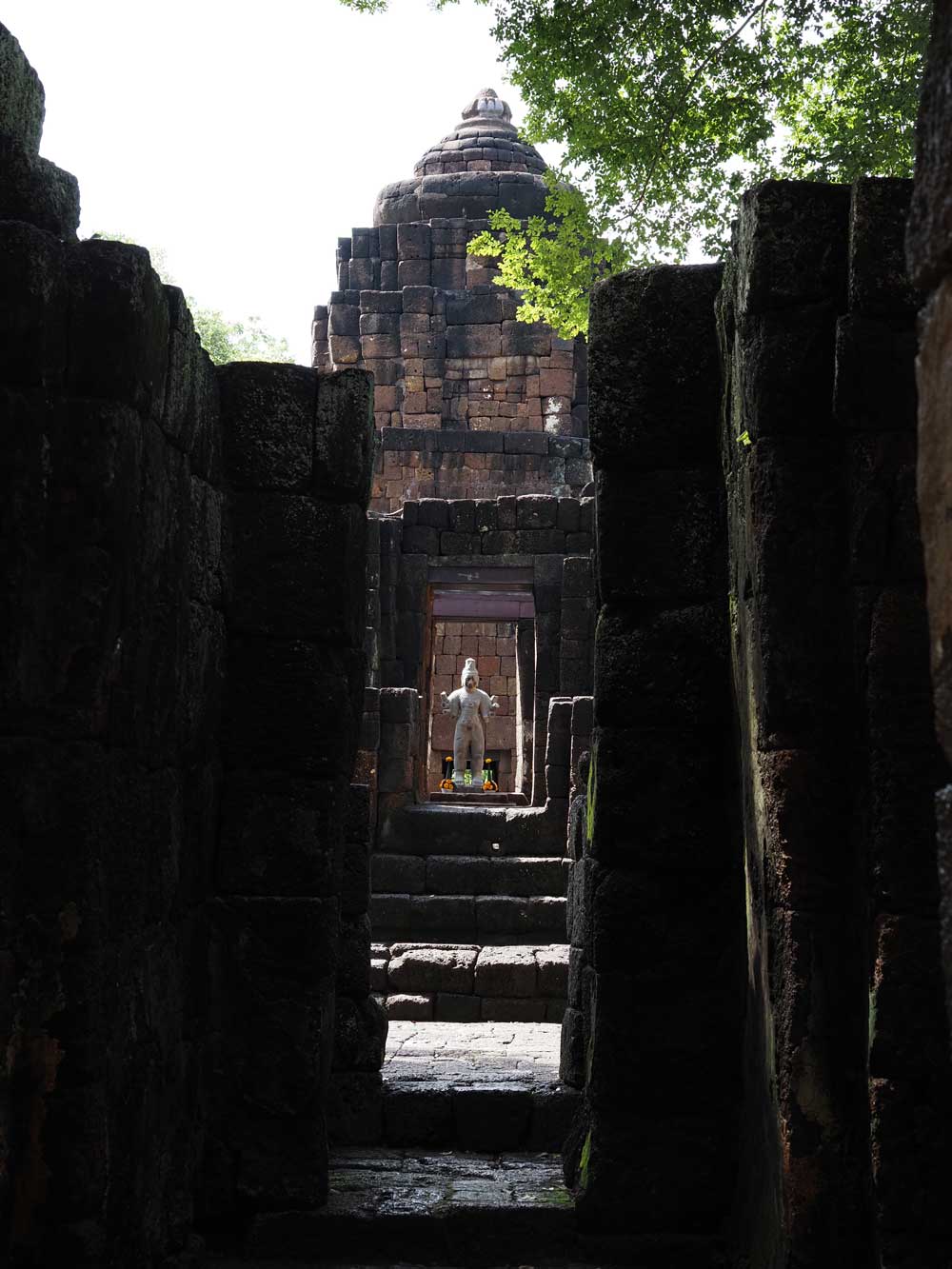
A statue of
the Radiating Bodhisattva Avalokitesvaran presides in the remains of the central
tower.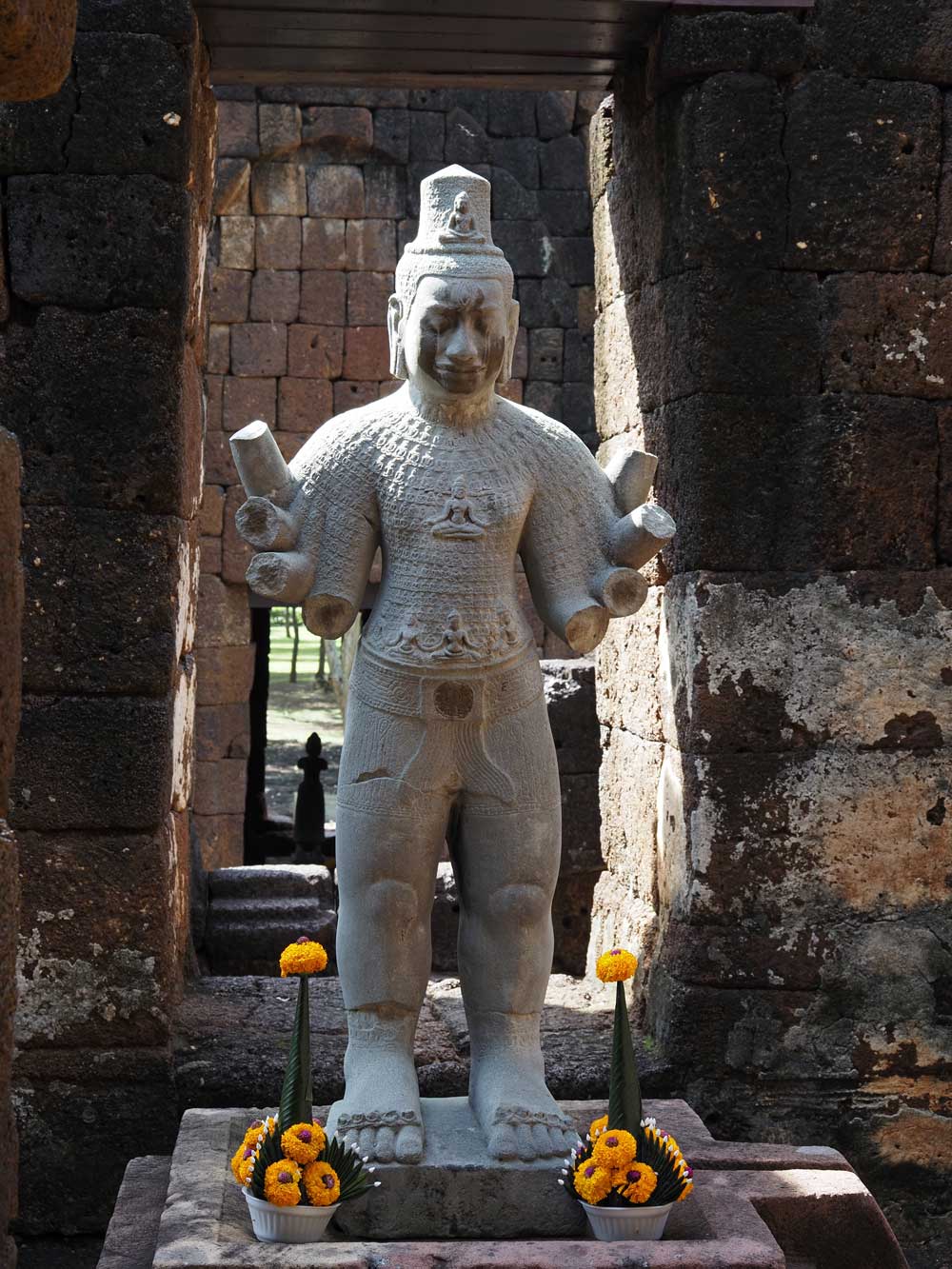
The
Radiating Bodhisattva Avalokitesvara
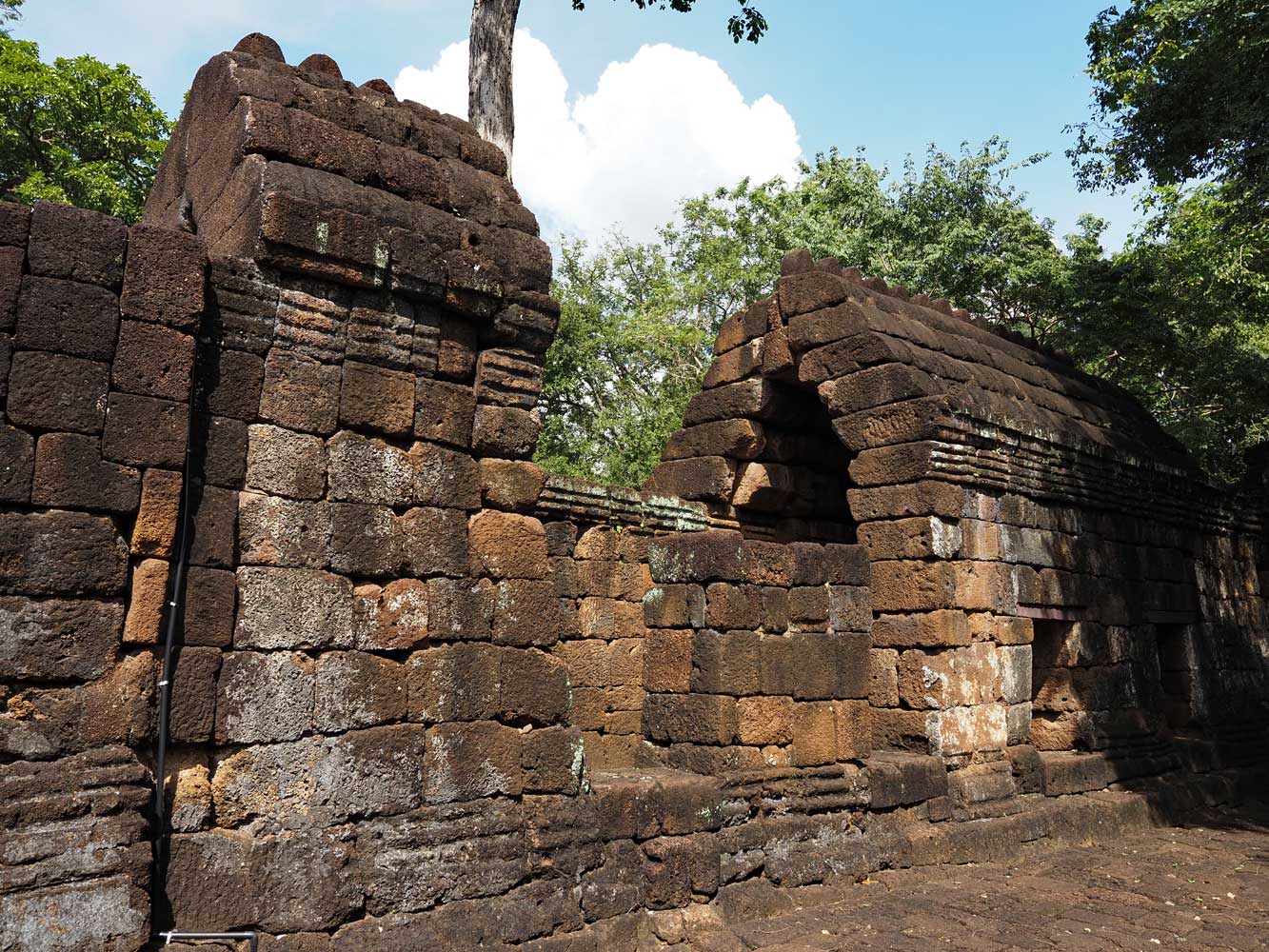
A covered walkway
once encircled the temple.
The ancient Khmer used corbel arches.
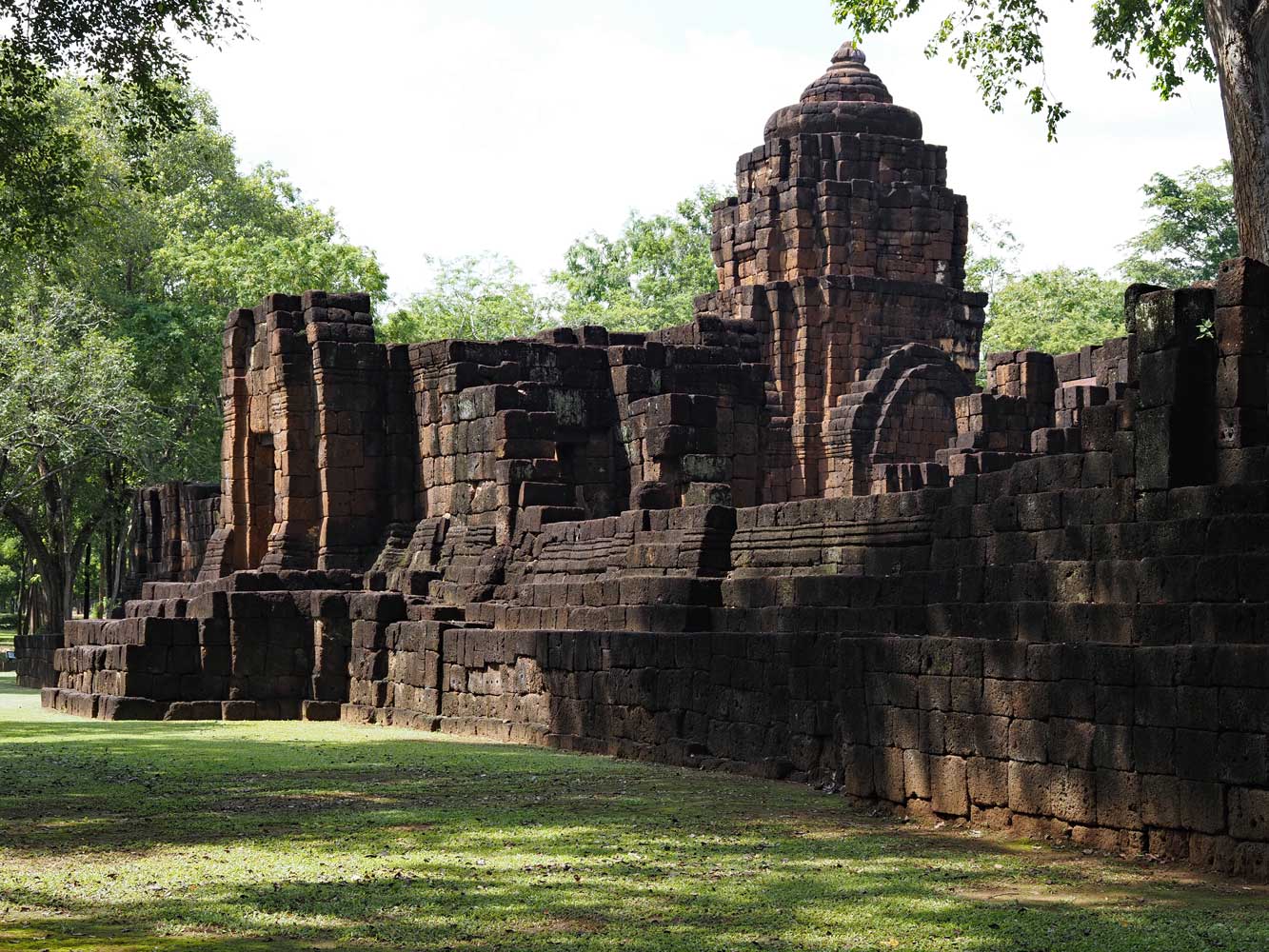
The south side of
the main temple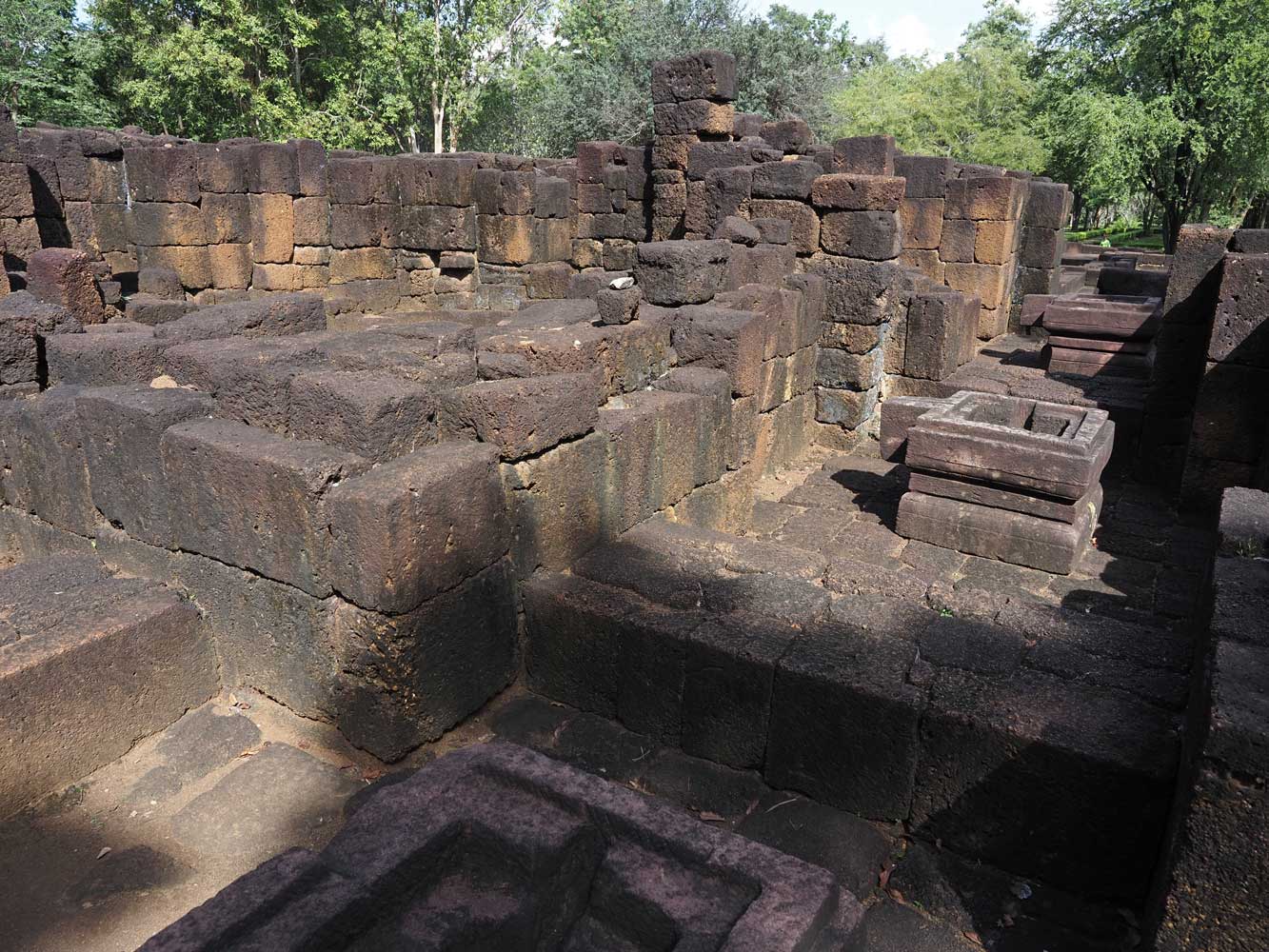
The second temple has only low walls that enclose small chambers with bases that
once supported statues.
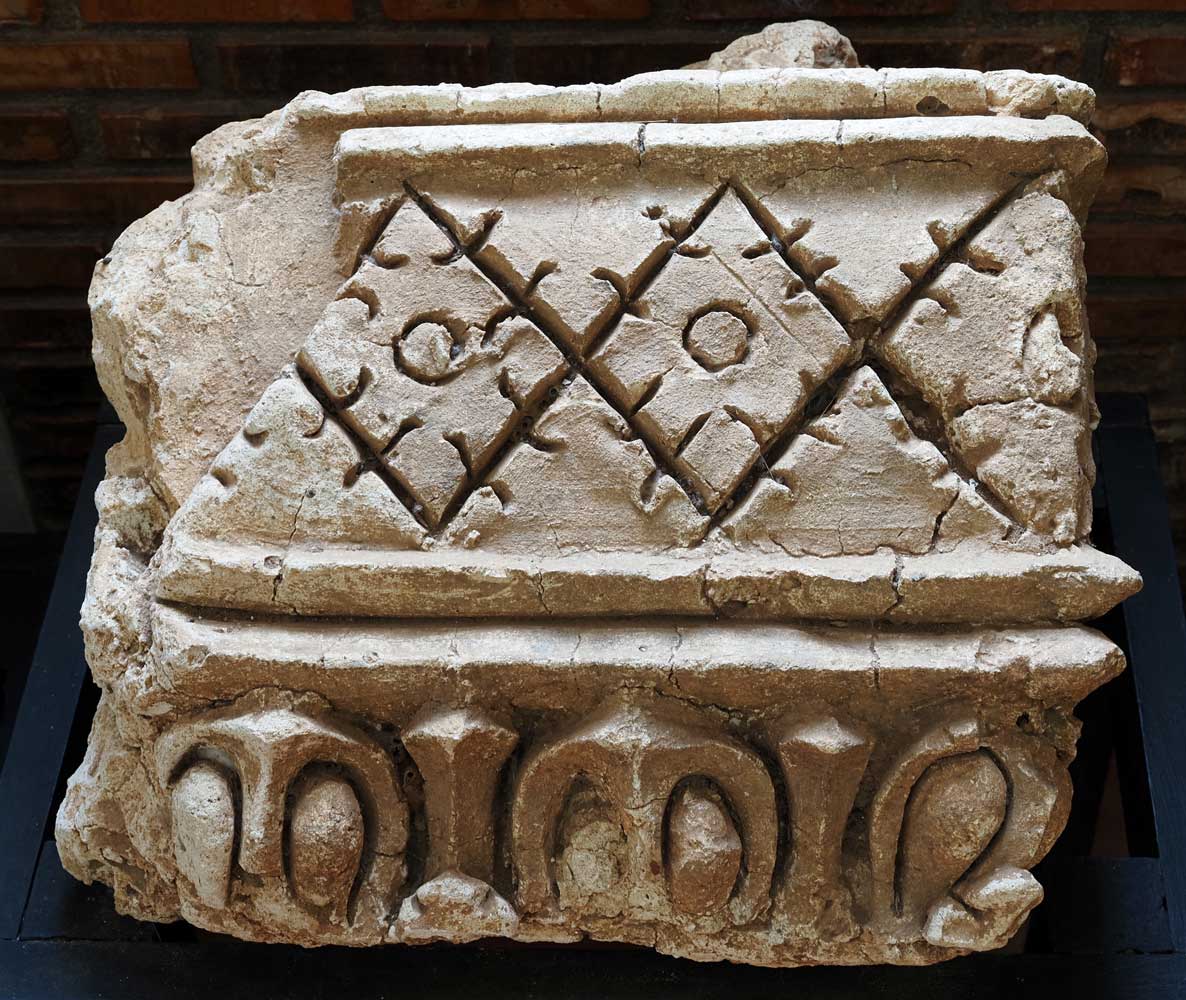
Terracotta like
this remnant in the exhibition hall once covered the temples.
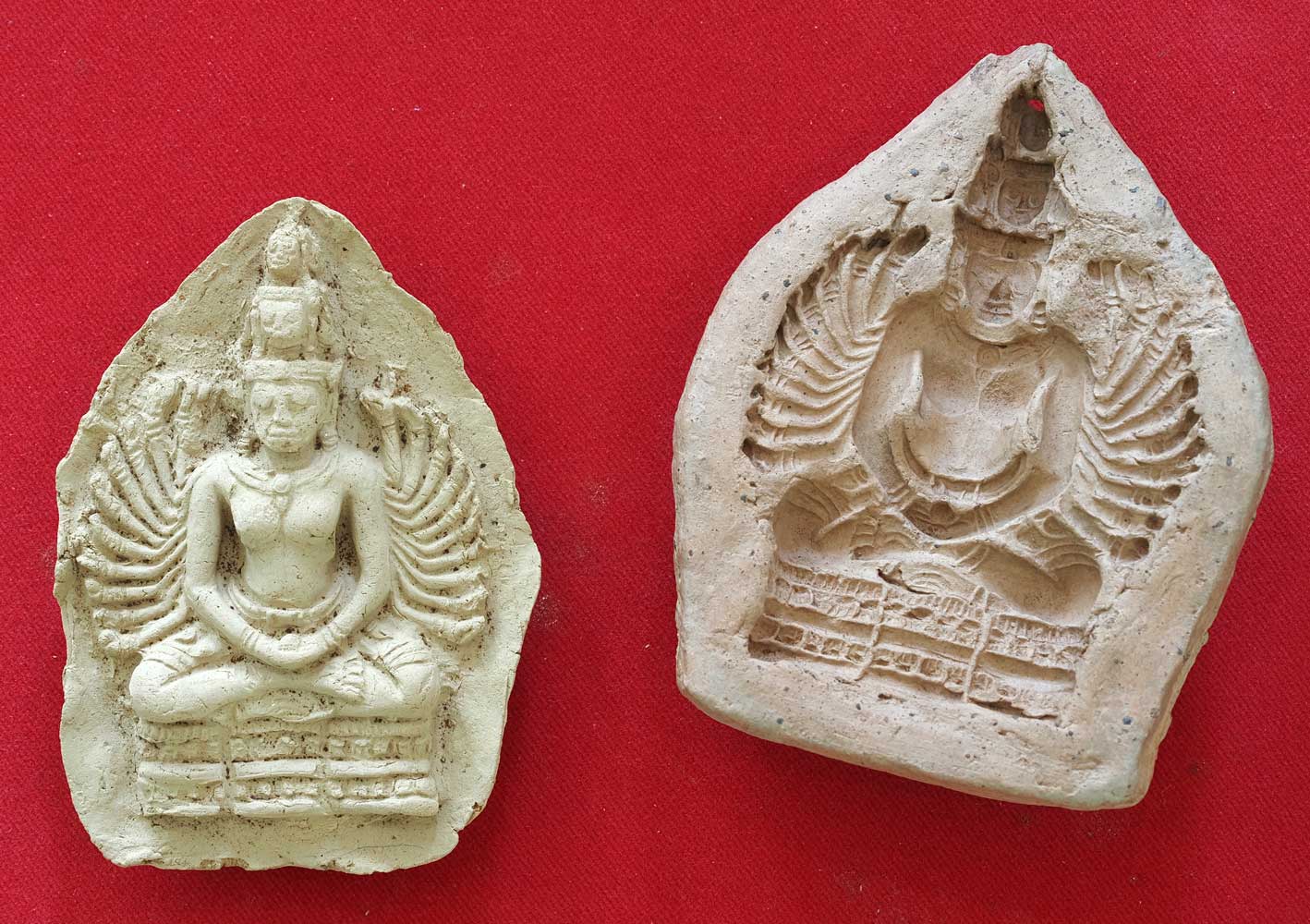
A mold for a small
votive image of Avalokitesvara
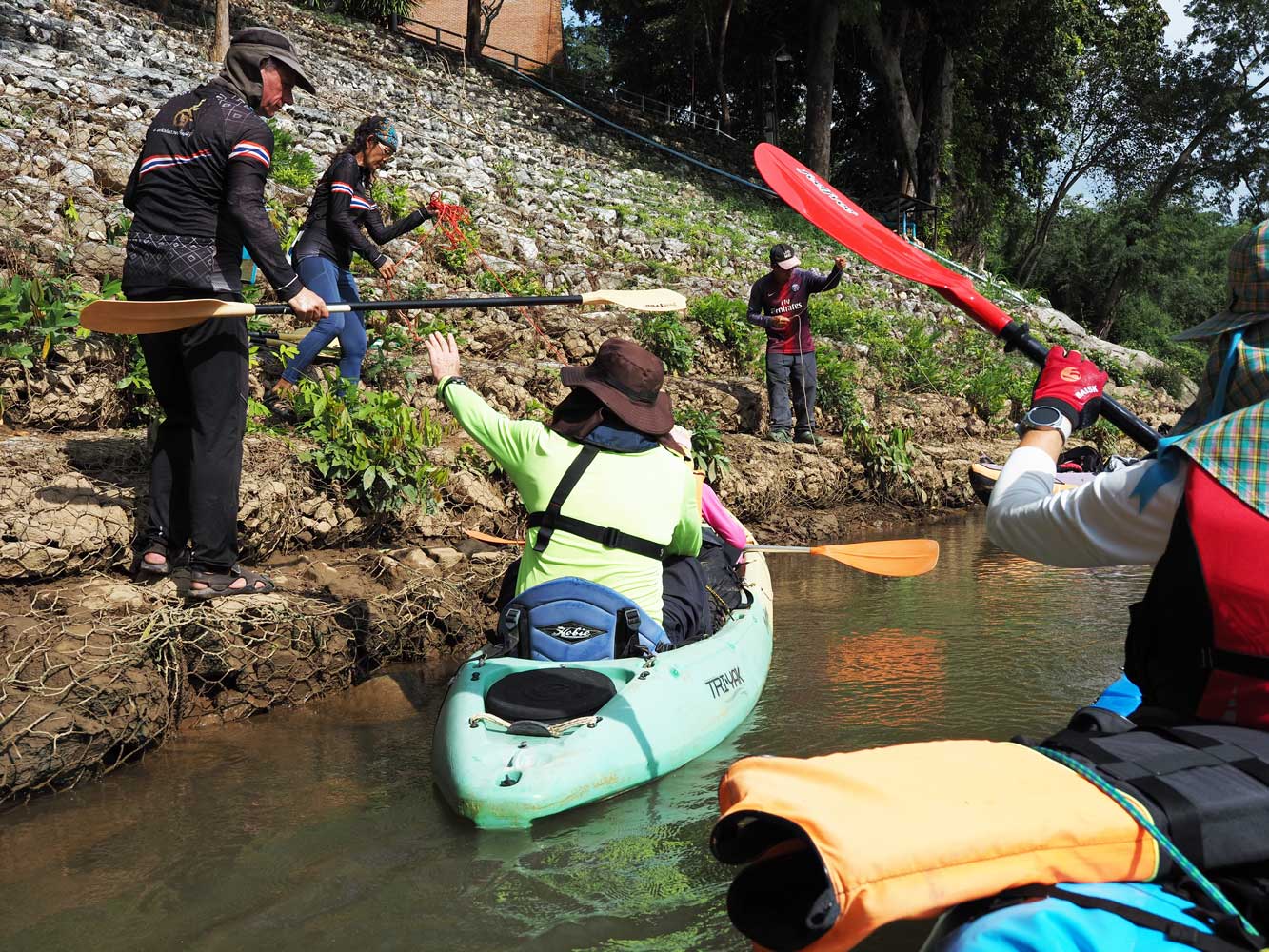
We head off from
Prasat Muang Sing Historical Park.
Our raft rooms
were comfortable and we enjoyed a great dinner at the resort’s restaurant, where
I got a spicy sweet and sour tofu dish and a tom kha (coconut cream soup with
mushrooms and veggies).
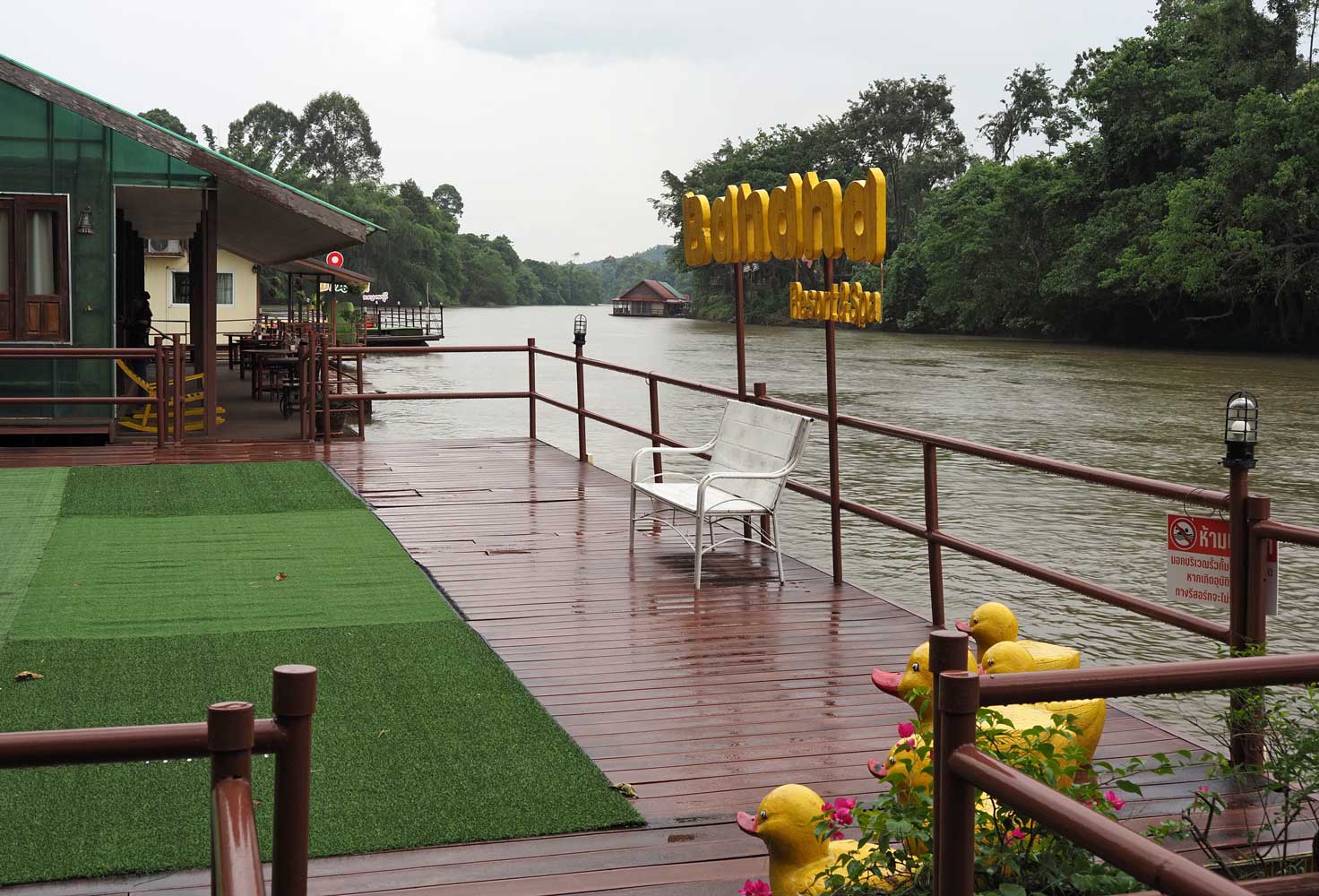
A bit of rain falls
after we arrive at Banana Resort and Spa.